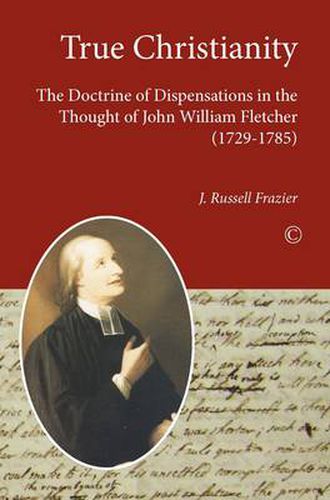Readings Newsletter
Become a Readings Member to make your shopping experience even easier.
Sign in or sign up for free!
You’re not far away from qualifying for FREE standard shipping within Australia
You’ve qualified for FREE standard shipping within Australia
The cart is loading…






John William Fletcher (1729-1785) was a seminal theologian during the early Methodist movement and in the Church of England in the eighteenth century. Best known for the Checks to Antinomianism, he established a theology of history to defend the church against the encroachment of antinomianism as a polemic against hyper-Calvinism. Fletcher believed that the hyper-Calvinist system of divine fiat and finished salvation did not take seriously enough either the activity of God in salvation history or an individual believer’s personal progress in salvation. Fletcher made the doctrine of accommodation a unifying principle of his theological system and further developed the doctrine of divine accommodation into a theology of ministry. As God accommodated divine revelation to the frailties of human beings, Fletcher argued that ministers of the gospel must accommodate the gospel to their hearers in order to gain a hearing for the gospel without losing the goal of true Christianity. ‘True Christianity’ contains insights from Fletcher, who devoted himself, according to Wesley, to being ‘an altogether Christian’.
$9.00 standard shipping within Australia
FREE standard shipping within Australia for orders over $100.00
Express & International shipping calculated at checkout
John William Fletcher (1729-1785) was a seminal theologian during the early Methodist movement and in the Church of England in the eighteenth century. Best known for the Checks to Antinomianism, he established a theology of history to defend the church against the encroachment of antinomianism as a polemic against hyper-Calvinism. Fletcher believed that the hyper-Calvinist system of divine fiat and finished salvation did not take seriously enough either the activity of God in salvation history or an individual believer’s personal progress in salvation. Fletcher made the doctrine of accommodation a unifying principle of his theological system and further developed the doctrine of divine accommodation into a theology of ministry. As God accommodated divine revelation to the frailties of human beings, Fletcher argued that ministers of the gospel must accommodate the gospel to their hearers in order to gain a hearing for the gospel without losing the goal of true Christianity. ‘True Christianity’ contains insights from Fletcher, who devoted himself, according to Wesley, to being ‘an altogether Christian’.